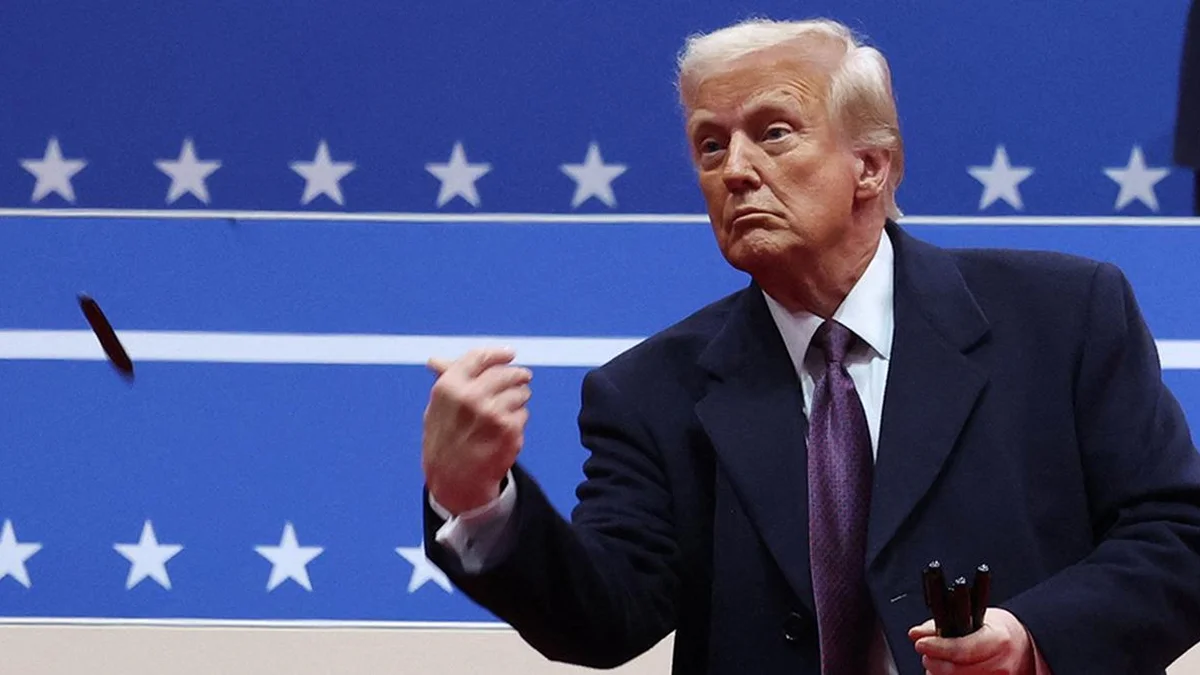Necessary Always Active
Necessary cookies are required to enable the basic features of this site, such as providing secure log-in or adjusting your consent preferences. These cookies do not store any personally identifiable data.
|
||||||
|
||||||
|
||||||
|

Donald Trump is proposing a 10-year ban on US states from creating their own laws to regulate artificial intelligence (AI). Microsoft’s chief scientist, Dr. Eric Horvitz, strongly opposes this idea. He believes that banning state-level AI rules will slow down progress in both AI research and its real-world applications.
According to The Guardian, Trump’s plan to block AI laws is part of a new budget bill that aims to stop states from limiting or regulating AI systems. The move has support from some big tech companies, but experts like Horvitz warn that such a ban could do more harm than good.
Dr Eric Horvitz, who also served as a tech adviser to President Joe Biden, has voiced serious concerns about Trump blocking AI regulation laws. Speaking at a major AI conference, the Association for the Advancement of Artificial Intelligence, Horvitz said such a ban would “hold us back”. He explained that preventing the US from implementing AI policies could hinder important technological developments.
“It could be at odds with making good progress on not just advancing the science, but in translating it into practice,” Horvitz said.
He believes that smart guidance and safety rules are not barriers; they help AI move forward faster. “Guidance, regulation … reliability controls are part of advancing the field, making the field go faster in many ways,” he added.
Horvitz also raised concerns about the dangers of unregulated AI and warned that it could be used to spread misinformation and manipulate people’s opinions. “I’m concerned about AI being leveraged for misinformation and inappropriate persuasion … for malevolent activities, for example, in the biology biological hazard space,” he said.
Despite his concerns, Microsoft is reportedly part of a lobbying group that supports the ban. Microsoft, Google, Meta, and Amazon are pushing lawmakers to stop individual US states’ AI policies for the next ten years.
Trump’s proposal to block AI laws is included in his upcoming budget bill. The bill, which he wants to pass by July 4, would stop all 50 US states from creating any new policies or regulations that limit how AI systems are built or used.
The reason behind this national AI law being in talks in the USA, according to supporters, is to avoid a messy patchwork of different state-level regulations. They believe that having one federal rule will help the country compete with China in the race for artificial intelligence leadership.
Trump supporters, including venture capitalist and tech investor Marc Andreessen, believe a delay in AI development could give China an advantage. “The US is in a two-horse race for AI supremacy with China,” Andreessen said. US Vice President JD Vance added, “If we take a pause, does China not take a pause? Then we find ourselves enslaved to China-mediated AI.”
However, many lawmakers and state officials disagree with this view. More than 40 state attorneys general have opposed Trump’s AI regulation ban. They argue that US states should be allowed to protect their people through their own AI policies, especially when it comes to AI tools used in education, healthcare, and consumer products.
California Attorney General Rob Bonta said the US states are already creating laws to tackle issues like deepfakes and AI-related privacy threats. He believes stopping states from acting would leave citizens unprotected.
Stuart Russell, a leading AI expert and professor at the University of California, Berkeley, also spoke at the same event as Horvitz. He warned about the risks of advanced AI and said, “Why would we deliberately allow the release of a technology which even its creators say has a 10% to 30% chance … of causing human extinction?”
While the tech industry debates whether rules will slow or support innovation, experts like Horvitz and Russell believe that ignoring risks could lead to serious consequences. The decision now lies with Congress, whether to follow the tech companies’ push for a national AI law in the USA or allow US states to keep regulating AI in their ways.